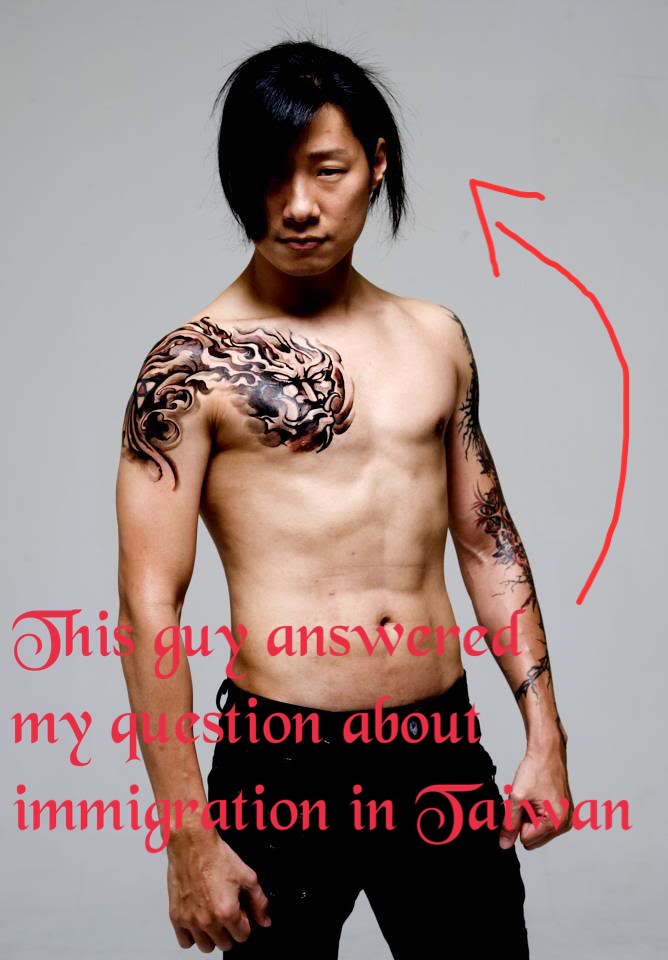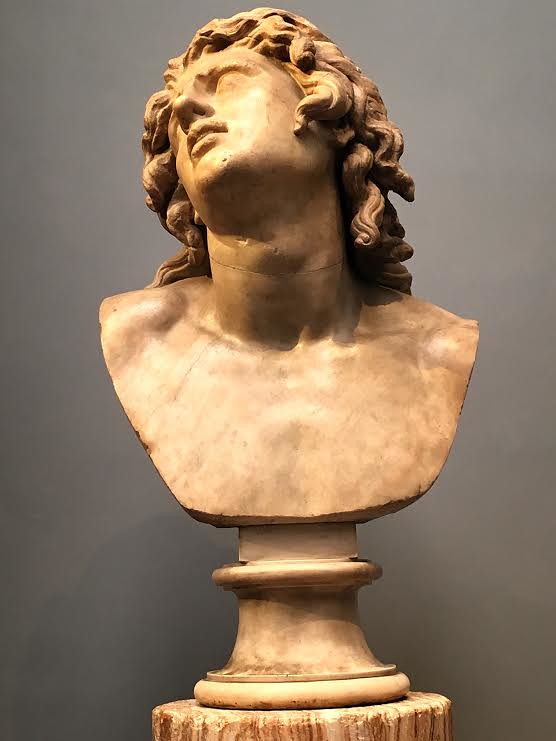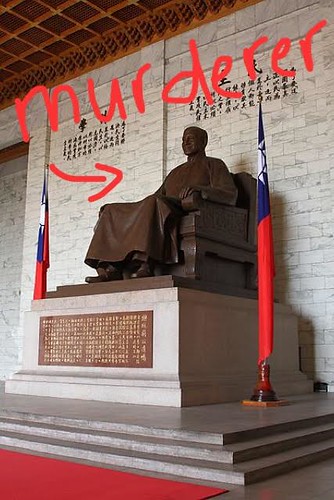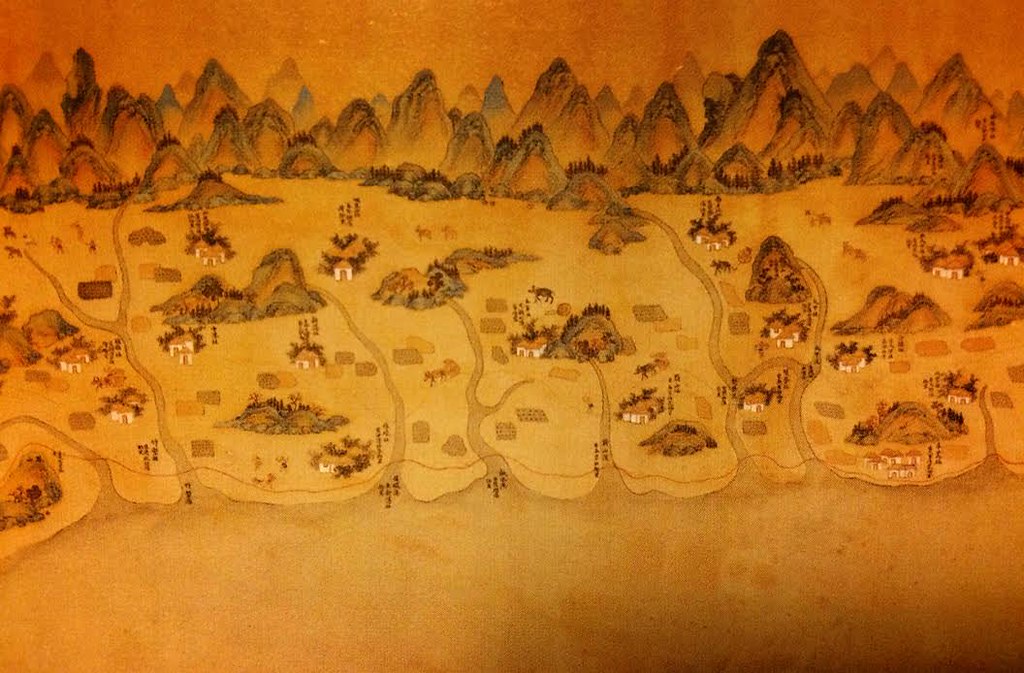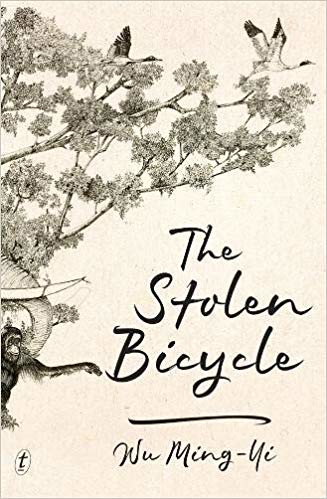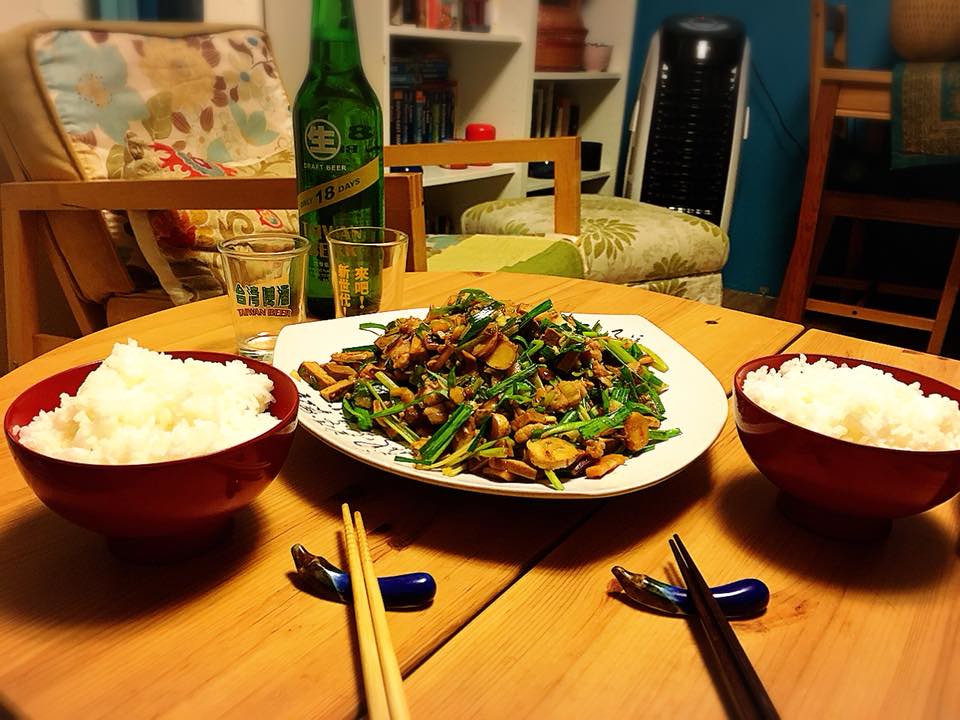
Months ago, I picked up Cathy Erway's The Food of Taiwan, cooked a bunch of my favorite Taiwanese dishes from it, and wrote about the experience. I structured it as a discussion of how it feels to be a foreigner who calls Taiwan home improving her ability to cook Taiwanese food, but also of what makes a Taiwanese dish both "good" and "authentic". Something might be "good" but not taste particularly like a dish as it's usually served in a region (for example, I like the Taiwanese take on ma po doufu 麻婆豆腐. I think it's good, but it doesn't taste anything like what I used to eat in Guizhou and Sichuan). Or, something might be "authentic" - maybe your 92-year-old Hakka grandmother in Yangmei made it - but, as I noted to a friend, not everyone's Hakka grandma is necessarily a good cook.
Of course, the best dishes tend to be both: they're deeply rooted in their places and cultures of origin, and also made well.
I also considered the tendency of Westerners to have endless variations of their own food, while thinking food of other cultures only had one "correct" form, and any deviations from that particular way of preparing it were somehow "wrong" and "inauthentic". Of course this isn't true. Different cooks across Taiwan cook the same dishes in slightly different ways, just as cooks might do from Ohio to Iowa.
With that in mind, I want to return to the Hakka stir-fry (客家小炒) recipe in The Food of Taiwan. There was a discussion on this in the "books about Taiwan" Facebook group I manage about the various aspects of the recipe, and also on my personal page. I complained about the inclusion of carrots and the lack of garlic greens, the lack of rice wine, the way the pork belly was sliced (not into matchsticks as is common in Taiwan, but into slices and pre-cooked), and the lack of specification about the squid, which it is implied in the recipe may be fresh squid. And, I'd like to add, the sparing use of "light soy sauce". Some of my friends - all Hakka - were horrified. Other commenters thought this recipe would make it easier for non-Taiwanese and those not in Taiwan to make a version of the dish, and it was therefore fine.
To me - caveat: someone who is very much not Hakka - this just doesn't produce the Hakka stir-fry I've eaten in Taiwan. It just...doesn't. Maybe it's "good" (I made the recipe, I thought it was...fine. Totally acceptable) but it didn't strike me as at all "authentic". It just wasn't the lip-smacking, flavor-intense dish of greens and chewy matchsticks of tasty pork, tofu and squid that I've come to know and love.
Of course, there's an added issue when you're not just a non-Hakka cooking Hakka food, but a non-Taiwanese cooking a Taiwanese dish. I know I can cook good food, but if I'm going to fry something up and call it authentic, it has to really taste authentic. There is less space for me to spin my own variation on something and call it "Hakka stir fry" (or anything Taiwanese that I might make). If I change things up too much, but claim to be making a particular food from a particular place and culture, I not only become culturally appropriative (not appreciating the host culture) but also forfeit any claim I may have to seeking to better understand Taiwan through learning how to make this food with my own hands.
So, last night, I decided to try again. Instead of using Erway's recipe, I just grabbed the first search result off iCook, just to see how it played out. I cribbed a few of the better elements of Erway's recipe: the use of ginger and chili bean sauce. Hakka friends had told me these were acceptable flavor enhancers and I thought they worked well. I also cooked up the ginger, garlic (not garlic greens) and white parts of the scallions in a little oil before adding the pork.
I also soaked the dried squid in Shaoxing rice wine (紹興酒) with a little water added because that would otherwise require a LOT of Shaoxing wine rather than water, because that's what my friend says his Hakka wife's family does. That's pretty legit.
Notably, this recipe called for matchsticked pork cooked in a wok (not boiled), thick soy sauce (醬油膏) rather than light soy sauce (add the chili bean sauce at the same time if you like), sugar, reconstituted dried squid rather than fresh squid, garlic greens along with the celery and scallions, and rice wine. And absolutely no carrots.
I stuck mostly to the iCook recipe to see if it would produce a Hakka stir-fry that was both "good" and "authentic" - and you know what? It did!

Looks pretty solid, no? This not only tasted great, but tasted (and looked) like something I'd get in an actual restaurant in Taiwan.
Contrast that to the result of using Erway's recipe (though I didn't quite follow it - I did use dried squid, I did matchstick my pork, and I did use garlic greens rather than carrot because I have principles). Same "food photography" filter, same level of photo editing:
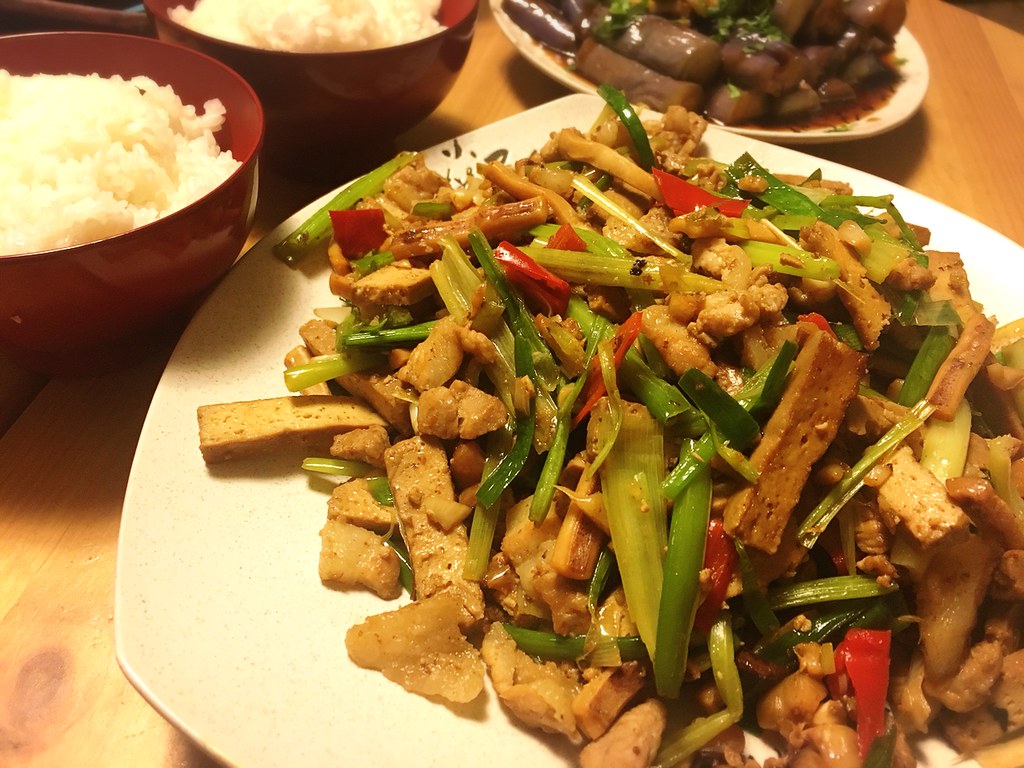
Seems fine, right? But it was a lot blander. It didn't have that thick coating of slightly sweet, soy-based deliciousness tinged with the subtle enhancement of rice wine that the stir-fry I made last night did.
Now, that's not the end of the story. That friend's Hakka wife, from Miaoli? Her family apparently fries up each ingredient separately "to make sure each one is cooked to the peak of fragrance and texture", and doesn't use dried tofu (though she concedes it's an acceptable addition. I happen to like it.)
She's actually Hakka - her version is certainly more "authentic" than mine. And though I've never tried it, I can be pretty damn sure it tastes better, too. I don't believe there's anything genetic about cooking: one doesn't get to be good at cooking Hakka food just because one is Hakka, but I didn't grow up in that culture. I didn't eat this dish as a kid. My family doesn't run a restaurant in Miaoli. There's a lot of experience-based knowledge that I can't have. I accept that.
In the end, though, I can make a pretty okay Hakka stir-fry too, and I do think there's a "way" to do that where "good" and "authentic" intersect.
I am a firm believer in seeking to understand other cultures (not appropriating them), and I appreciate it when certain cultural knowledge - like how to cook commonly-served dishes - is made accessible. I don't think I have to be Hakka to make Hakka stir-fry, or Korean to make kimchi, or Mexican to make flautas (though I'd hesitate to attempt to make a profit doing so). But, if we're going to seek to understand through cooking, we do have to at least attempt to produce the real thing. No carrots, no long slices of pork, no fresh squid, no light soy sauce. Otherwise, we're just making stir-fry and pretending it's 客家小炒. We congratulate ourselves, but have learned nothing.
Here's my full recipe for White Lady Makes Hakka Stir-Fry:
1 pack of pork belly (五花肉)from the supermarket, sliced into matchsticks (I never get up early enough to go to the traditional market)
3-4 scallions (青蔥) , white and light green section sliced, green sections sliced into thin matchsticks
1 large garlic green (蒜苗) - white bulb section sliced, green sections sliced into matchsticks
1-2 roots (which have several stems) of Chinese celery (芹菜), de-leafed (though you can chop and add the leaves too) and matchsticked
1 pack dried tofu (豆乾), cut into matchsticks
1 dried squid (魷魚乾), soaked in Shaoxing wine (紹興酒) with a little water for a few hours or overnight, with tentacles, sliced up into pieces about the same size as the pork - cut against the grain so it won't curl up when stir-fried
2 cloves garlic (蒜頭), chopped
1 thumb of ginger (薑), in coins
A little neutral-tasting oil (沙拉油) - don't worry about using a little. The fat from the pork will give the dish a satisfying oiliness
1-2 tsp sugar (to taste) (糖)
2 tbsp thick soy sauce (醬油膏) - this is the secret to getting the sauce to stick to the meat/tofu
2 tbsp chili bean sauce (optional) (辣豆瓣醬)
1/4 cup rice wine (米酒)
powdered white pepper to taste (白胡椒粉)
Cook up the garlic, garlic green bulb (the white part), white part of onion and ginger in a little oil until fragrant. (I use medium gas, which would be high on an electric stove.)
Add pork and cook until pink disappears
Add tofu and cook for a minute
Add squid and cook for a minute
Add rice wine, toss
Add thick soy sauce, sugar, white pepper and chili bean sauce, toss till well-coated and it starts to stick to the meat/tofu/squid
Add all remaining greens, cook briefly until slightly wilted
Serve immediately over white rice.
Boom! Done.

